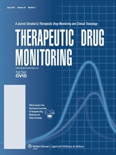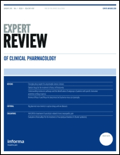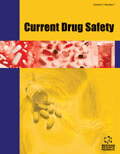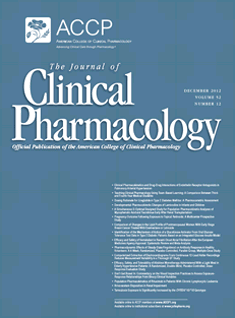
THERAPEUTIC DRUG MONITORING
Scope & Guideline
Pioneering the Future of Therapeutic Drug Management
Introduction
Aims and Scopes
- Population Pharmacokinetics:
This area emphasizes the study of drug concentration variability among different populations, utilizing modeling techniques to optimize dosing strategies across diverse patient demographics. - Therapeutic Drug Monitoring Techniques:
The journal highlights advanced methodologies in drug monitoring, including liquid chromatography-tandem mass spectrometry (LC-MS/MS) and microsampling techniques, which facilitate accurate drug level assessment in clinical settings. - Clinical Applications and Case Studies:
TDM publishes case studies that illustrate the practical implications of drug monitoring, showcasing how tailored therapeutic approaches can improve patient outcomes, particularly in critical care and specialized populations. - Pharmacogenomics and Personalized Medicine:
The integration of pharmacogenomic data into drug monitoring practices is a focus area, as it allows for personalized dosing regimens that account for individual genetic variability affecting drug metabolism. - Drug-Drug Interactions and Safety Assessments:
The journal addresses the complexities of drug interactions and their potential impacts on therapeutic efficacy and safety, guiding clinicians in managing polypharmacy effectively.
Trending and Emerging
- Model-Informed Precision Dosing:
There is an increasing emphasis on model-informed approaches to dosing, utilizing pharmacokinetic models to tailor drug regimens for individual patients, particularly in complex cases such as renal impairment or obesity. - Integration of Artificial Intelligence and Machine Learning:
The application of AI and machine learning techniques to enhance drug monitoring practices is emerging, providing innovative solutions for predicting drug levels and optimizing therapeutic outcomes. - Focus on Pediatric and Geriatric Populations:
An uptick in research specifically addressing therapeutic drug monitoring in pediatric and geriatric populations is evident, as these groups often exhibit unique pharmacokinetic profiles and require specialized dosing strategies. - Use of Alternative Sample Matrices:
Research on alternative sample matrices, such as dried blood spots and saliva, is gaining traction, offering more convenient and less invasive options for therapeutic drug monitoring. - Pharmacogenetic Applications in Clinical Practice:
There is a growing trend towards integrating pharmacogenetic testing into therapeutic drug monitoring, allowing for more personalized treatment plans based on individual genetic profiles.
Declining or Waning
- Traditional Monitoring Approaches:
There is a noticeable decline in research focusing solely on traditional trough concentration monitoring, as newer methodologies such as area under the curve (AUC) estimation gain traction for their enhanced accuracy and clinical relevance. - General Population Studies:
The journal has seen a reduction in studies that broadly assess drug monitoring in general populations, with a shift towards more targeted research in specific patient groups or conditions, reflecting a move towards precision medicine. - Static Reference Ranges:
The use of static reference ranges for therapeutic drug levels is diminishing in favor of more dynamic and individualized approaches that consider patient-specific factors such as pharmacogenomics and real-time monitoring data. - Basic Pharmacokinetic Studies:
Research focused solely on basic pharmacokinetic parameters without clinical application or relevance to therapeutic outcomes is becoming less frequent, as the journal prioritizes studies that directly impact clinical practice.
Similar Journals

Expert Review of Clinical Pharmacology
Elevating the standards of clinical pharmacology for better health.Expert Review of Clinical Pharmacology, published by TAYLOR & FRANCIS LTD, is a leading peer-reviewed journal dedicated to the field of clinical pharmacology, with a strong focus on the development and application of pharmacological therapies in patient care. Boasting an impressive impact, the journal ranks in the first quartile across multiple categories including Medicine (miscellaneous), Pharmacology (medical), and Pharmacology, Toxicology and Pharmaceutics (miscellaneous), reflecting its influential position within the scientific community. With a Scopus ranking of #6 in General Pharmacology, Toxicology and Pharmaceutics, the journal also achieves a commendable 93rd percentile, further emphasizing its importance as a resource for researchers and clinicians alike. As it continues to publish innovative reviews and research articles from 2008 until 2024, the Expert Review of Clinical Pharmacology plays an essential role in advancing knowledge, improving clinical practice, and fostering collaboration among experts in pharmacology, thereby driving forward the field's evolution towards better patient outcomes.

ACTA POLONIAE PHARMACEUTICA
Empowering Scholars in the Quest for Drug DiscoveryACTA POLONIAE PHARMACEUTICA is a well-established peer-reviewed journal published by Polskie Towarzystwo Farmaceutyczne, dedicated to the field of pharmaceutical sciences and pharmacology. With a rich history dating back to 1951, this journal serves as a vital platform for disseminating cutting-edge research and developments in pharmaceutical technology, drug development, and therapeutic therapies. Although it currently operates under a subscription model, its commitment to scientific rigor has earned it a respectable impact factor, placing it in the Q3 and Q4 quartiles respectively for Pharmaceutical Science and Pharmacology as of 2023. Researchers and practitioners alike will find value in its comprehensive coverage of essential topics, as well as its diverse range of contributions from both established and emerging scholars in the field. With its address located in the heart of Warsaw, Poland, ACTA POLONIAE PHARMACEUTICA aims to further bridge the gap between academia and industry, paving the way for innovation in drug discovery and therapeutic applications.

Frontiers in Pharmacology
Fostering collaboration and innovation in pharmaceutical sciences.Frontiers in Pharmacology, published by FRONTIERS MEDIA SA, stands as a leading open-access journal dedicated to advancing the field of pharmacology since its inception in 2010. With its ISSN 1663-9812, the journal is based in Switzerland and maintains a vital role in disseminating innovative research findings that span various disciplines within pharmacology, including pharmacokinetics, toxicology, and pharmacogenetics. In 2023, Frontiers in Pharmacology has achieved an impressive standing within the scientific community, being ranked in the Q1 category for both general and medical pharmacology, highlighting its critical contribution to the field with a Scopus ranking of #41 out of 272 in medical pharmacology and #76 out of 313 in pharmacology, toxicology, and pharmaceutics, placing it in the 75th and 85th percentiles, respectively. Researchers and practitioners benefit from its open-access model, which ensures widespread accessibility to groundbreaking research, fostering collaboration and innovation across the pharmaceutical sciences. With its commitment to excellence, Frontiers in Pharmacology serves as an essential resource for those looking to explore and contribute to the latest advancements in pharmacological research.

CLINICAL THERAPEUTICS
Advancing pharmacological innovation for better patient outcomes.Clinical Therapeutics, published by Elsevier, is a highly esteemed peer-reviewed journal that has been pivotal in advancing the field of pharmacology since its inception in 1977. With an impressive impact factor and recognition as Q2 in Pharmacology and Q1 in Medical Pharmacology for 2023, it stands at the forefront of research and discussions on innovative therapeutic strategies and pharmacological advancements. This journal not only caters to a broad audience of researchers and clinicians but also plays a vital role in disseminating critical information that supports the enhancement of patient care and safety. As a repository of high-quality, evidence-based articles, Clinical Therapeutics is a crucial resource for those involved in drug development, medical research, and clinical practice, making it an essential read for anyone dedicated to improving health outcomes through pharmaceutical sciences.

Current Drug Safety
Navigating the Complexities of Pharmacological SafetyCurrent Drug Safety is a distinguished peer-reviewed journal published by Bentham Science Publishers, focusing on the critical intersection of pharmacology and toxicology. With an ISSN of 1574-8863 and an E-ISSN of 2212-3911, this journal serves as a platform for the latest research and advances in drug safety, highlighting the importance of pharmacological assessments and toxicity evaluations in therapeutic development and public health. Reaching a broad international audience from its base in the United Arab Emirates, Current Drug Safety offers an invaluable resource for researchers, professionals, and students interested in the dynamic fields of drug research and safety management. Despite a current Q3 categorization in multiple pharmacology and toxicology quartiles for 2023, the journal continues to strive for excellence in the scholarly community, reflecting its commitment to disseminating high-quality research. While not operating under an open access model, articles can be accessed through institutional subscriptions and other platforms, ensuring valuable insights into drug safety are available to those who need it most.

DRUGS & THERAPY PERSPECTIVES
Empowering Researchers and Practitioners in Drug TherapyDRUGS & THERAPY PERSPECTIVES is an esteemed journal published by SpringerNature, dedicated to advancing knowledge in the field of pharmacology and therapeutic studies. With an ISSN of 1172-0360 and an E-ISSN of 1179-1977, this journal has been providing valuable insights since its inception in 1993 and continues to publish until 2024. Ranked in the Q3 category for Pharmacology (medical) and positioned within the 25th percentile according to Scopus rankings, it serves as a vital resource for researchers, practitioners, and students alike. Although it is not an open-access journal, it offers a comprehensive platform for innovative research, clinical practices, and evolving therapeutic strategies, reflecting the critical developments in drug therapy landscape. With its strategic emphasis on bridging academic studies and clinical applications, DRUGS & THERAPY PERSPECTIVES remains essential for those committed to enhancing drug efficacy and patient outcomes in the ever-evolving medical field.

DRUGS IN R&D
Leading the charge in pharmacology and toxicology advancements.DRUGS IN R&D is a premier open access journal dedicated to advancing the field of pharmacology and drug development. Published by Springer International Publishing AG, this journal has been a valuable resource for researchers and professionals since its inception in 1999, contributing critical insights into the pharmacological sciences. With an impressive Impact Factor reflecting its significance, DRUGS IN R&D ranks in the Q2 quartile for Pharmacology, according to 2023 metrics, and ranks #151 out of 313 in the field of pharmacology and toxicology on Scopus. This journal offers an open access format, ensuring high visibility and accessibility of research findings to a global audience, supporting the intrepid pursuit of knowledge in drug research and development. By facilitating comprehensive discussions and innovative research findings, DRUGS IN R&D plays a crucial role in shaping the future landscape of pharmacological studies and advancements.

Clinical Pharmacology-Advances and Applications
Enhancing Healthcare Through Open Access ResearchClinical Pharmacology-Advances and Applications is a premier open access journal published by DOVE MEDICAL PRESS LTD, based in New Zealand. Since its establishment in 2009, the journal has been dedicated to advancing the field of pharmacology by disseminating innovative research and applications related to medication therapy and patient outcomes. With its notable impact factor and current ranking within the top percentile of pharmacology journals, it provides an invaluable platform for researchers, healthcare professionals, and students to share knowledge and foster collaboration. The journal's content spans a wide range of topics, ensuring coverage of both fundamental and emerging areas in medical pharmacology. As of 2023, it holds a strong position in the Q2 quartile, underscoring its relevance and influence within the scientific community. Authors and readers alike benefit from its open access model, which ensures that critical findings are widely accessible, thereby enhancing the pace of discovery and application in clinical settings.

CLINICAL PHARMACOKINETICS
Exploring Clinical Insights in PharmacokineticsCLINICAL PHARMACOKINETICS, published by ADIS INT LTD, is a premier journal dedicated to the field of pharmacology, with a distinguished reputation since its inception in 1976. With an impressive impact factor and categorized in the Q1 quartile for both general pharmacology and medical pharmacology, this journal ranks #29 out of 272 and #53 out of 313 in its respective categories in Scopus, highlighting its high academic influence and the quality of research it publishes. CLINICAL PHARMACOKINETICS serves as a vital resource for researchers, professionals, and students interested in the latest advancements in drug metabolism, therapeutic efficacy, and clinical applications of pharmacokinetic studies. As it continues to evolve through 2024 and beyond, the journal remains committed to fostering a deeper understanding of pharmacotherapy and its implications in clinical practice. While it does not currently offer open access, the journal ensures that cutting-edge research is accessible through various academic platforms.

JOURNAL OF CLINICAL PHARMACOLOGY
Pioneering Knowledge in Medical PharmacologyWelcome to the Journal of Clinical Pharmacology, an esteemed publication in the field of pharmacology and medical pharmacology, published by Wiley. Since its inception in 1973, this journal has been at the forefront of disseminating innovative research findings and comprehensive reviews that enhance our understanding of drug therapies and their clinical applications. With an impact factor that reflects its strong reputation and a Scopus ranking placing it in the 64th percentile among 272 journals in medical pharmacology, the journal stands as a critical resource for researchers, healthcare professionals, and students alike. Although currently not an Open Access journal, it provides invaluable insights into therapeutic drug use and safety, the pharmacokinetics of drugs, and the development of new therapeutic strategies. The journal's commitment to advancing the field through high-quality, peer-reviewed articles ensures it remains a vital asset in the continuously evolving landscape of clinical pharmacology.